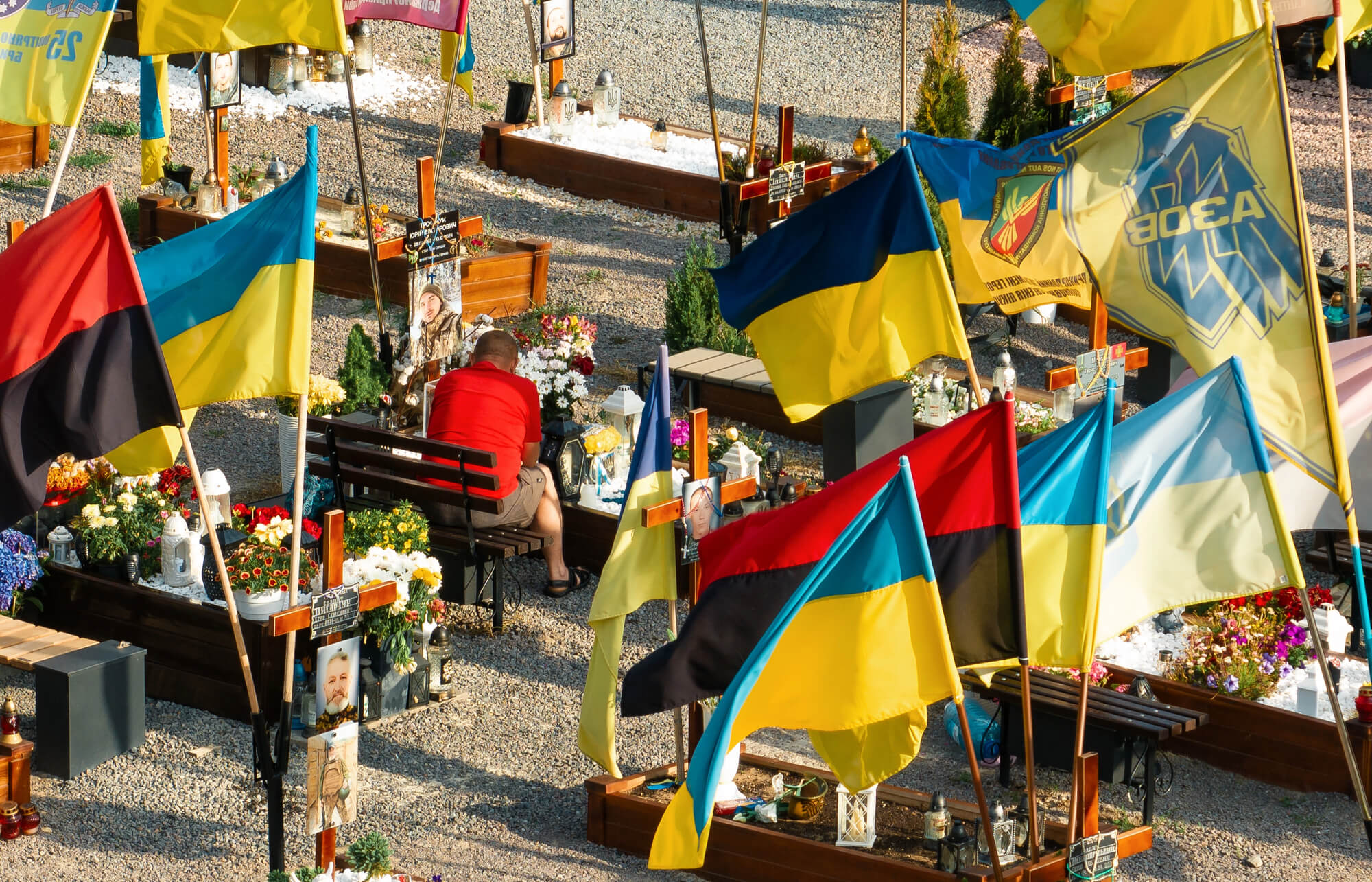While “war fatigue” is spreading in democracies, the autocratic powers are preparing for the global war – morally, technologically, and economically. While Russia, China, North Korea, and Iran wage hot wars in Ukraine and in the Middle East and hybrid wars in Europe and the US (by meddling in elections and distorting public opinion), Western societies believe that somehow the world will come “back to normal”. This is a dangerous self-delusion. The longer it lasts, the more devastating the war will be.
Recently, both the Finnish president and foreign minister warned about growing war fatigue among Western allies regarding assistance to Ukraine. The Finnish president compared the situation to a marathon where fatigue in the middle of the race cannot be allowed to prevent one from finishing the race.
While this comparison has its merits, let us make it perfectly clear that the reasons for war fatigue and the perceptions of a marathon race are to be found in the Western allies’ hesitant and delayed support for Ukraine. The EU, UK and US economies are more than five times larger than the Russian GDP. Still, as the Kiel Institute Support Tracker shows, the sums allocated for helping Ukraine are rather modest.
If superiority of the West had been used in 2014 (by introducing much more painful sanctions on Russia) or at least in the beginning of the full-scale war in 2022, the marathon race would have been much shorter, the costs would have been lower, and the war fatigue much less or even non-existent.
Giving in to war fatigue today is interpreted by Russia and its allies as a weakness and incentivizes them to attack other countries today and in the future. Russia started the war for revanchist reasons due to the collapse of the Soviet Union which Putin considers the greatest geopolitical disaster of the 20th century (worse than the Second World War and the Holocaust). Putin therefore demanded that NATO moves back to its 1997 borders. No doubt that he will pursue this goal until he can.
NATO’s commander in Europe general Cavoli recently warned that Russia would emerge stronger from the war with Ukraine independently of its outcome. We would dare to disagree. Indeed, Russians are quickly learning, including by copying Ukrainian technologies and tactics. Piecemeal delivery of Western weapons also allows Russians to develop counteraction techniques, acting as an immunization rather than treatment. However, if Russia is effectively defeated – both by economic sanctions and much larger supplies of weapons to Ukraine without any restrictions, then for some time it will be focused on internal problems and will leave aside its imperial ambitions. If, however, Russia is allowed to win, then it will use resources not only of its own and of its allies but also resources of occupied Ukrainian territories in its war against the West.
Any discussions about “avoiding direct confrontation between NATO and Russia” are misplaced because Russia is already at war with NATO. Russian propaganda repeatedly discusses missile strikes on European capitals and Washington. Russian agents, Russian diaspora or criminals paid by the Kremlin are engaged in a sabotage campaign in Europe. The sabotages include break-ins and arson at factories in Germany and UK, water treatment plants in Finland, GPS-jamming in the Baltics, physical attacks and even a reported assassination plot against the CEO of Germany’s largest arms company.
More dangerously, however, Russia uses democratic institutions against democracies. Recent elections in Austria, as well as pro-Russian leaderships in Hungary and Slovakia, a victory of the ultra-right in the Netherlands, in Thuringia, and the near victory of Le Pen in France are very worrying signs. Indeed, Russia is too weak to fight against NATO directly. That’s why it tries to weaken these countries by other means, including elections.
Thus, in addition to helping and increasing cooperation with Ukraine, the democratic world should also strongly improve internal security. Its institutions, legislation, support for civil society and religious communities should, like the media landscape, be secured against the influence of autocracies. Direct investments by such regimes and their assets in democracies should be subject to strict control and possibly expropriated. Finland is leading the way by preparing legislation that prohibits the purchase of real estate by citizens of these countries. Political parties, think tanks and news media should be banned from accepting Russian money. Russians willing to come to Europe should undergo strict security checks.
Trump’s victory in the US should be the wake-up call for Europe: do your best and prepare for the worst. Even without the US support, Europe has enough resources to win the war. There is at least $300 billion of frozen Russian money that can be used for Ukraine’s defense. Fears that confiscation of this money will cause financial instability are highly exaggerated. On the contrary, failing to defeat Russia will result in global war and financial instability.
The way the democracies respond to the Kremlin’s war against Ukraine is closely watched by Russia’s allies – China, Iran, and North Korea. Their regimes are assessing our help today to see if the West would help Taiwan, Israel and South Korea tomorrow.
Photo: depositphotos.com/ua
Attention
The authors do not work for, consult to, own shares in or receive funding from any company or organization that would benefit from this article, and have no relevant affiliations



